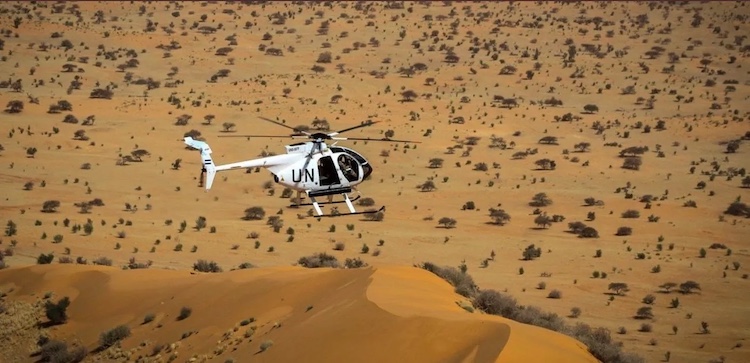By Rodney Reynolds
UNITED NATIONS (IDN) — After the invasion of Ukraine last February, Russia has been widely described, particularly by the US and Western nations, as an “international pariah”.
The United Nations has been equally critical of the invasion of a sovereign nation resulting in thousands of civilian killings and the destruction of entire cities in Ukraine.
UN Secretary-General António Guterres has accused the Russians of a military invasion that was in clear “violation of the territorial integrity and sovereignty of Ukraine—and inconsistent with the principles of the Charter of the United Nations”.
But ironically, the UN has continued its multi-million-dollar economic relationship with Russia, specifically the leasing of helicopters and aircraft for its peacekeeping missions, mostly in Africa.
The budget for UN Peacekeeping operations for the fiscal year July 1, 2021-June to 30, 2022 is a hefty $6.38 billion. (A/C.5/75/25)—and payments to Russian contractors will flow largely from this budget.
An equally valid question is: how will the UN pay for these purchases and services when Russians have been barred from most of the international banking system?
The issue is expected to be discussed at the upcoming assembly of the International Civil Aviation Organization (ICAO), a specialized UN agency, scheduled to take place September 25-28 in Montreal, Canada.
If the UN eventually decides to cut off its relationship with Russia, one UN source told IDN, the UN’s procurement division remains unprepared for an impending crisis where peacekeeping missions may come to a virtual standstill.
He also pointed out that several companies with many years of service to the UN, with a large range of aircraft and helicopters, are receiving “cold responses” from the aviation team at the UN’s procurement division when requested to have open discussions to find a solution.
“This is very serious, and the higher management is being led to believe the problem is under control but the staff on the ground in missions around the world are in panic mode.”
One proposal floating around the UN is to appoint a special manager with aviation knowledge who has credibility in the aviation industry.
The companies who have the capability to lease aircraft say they are looking for some guidance to configure other aircraft available in the global market that could be used to service UN requirements.
According to the latest available figures, the UN’s purchases from Russia amounted to about $132.3 million in 2020, with Moscow listed as the 5th largest supplier behind UAE, USA, Kenya and Switzerland.
The UN has trade links with Russia’s largest helicopter operator, UTair-Helicopter Services, described as a leading provider of aviation services to companies in the fuel and energy industries, plus the United Nations.
There have also been rumours that some contracting firms have links to Russian oligarchs and high-ranking political officials who have been crippled by US and Western European sanctions.
Meanwhile, in a lengthy article last month, the UN-based PassBlue said Russia has recently violated certain rules of the International Civil Aviation Authority, which ensures flight safety standards in global skies.
“The country has until Sept. 14 to remedy its rule-breaking, but if it is not resolved, the UN may not be able to continue leasing Russian aircraft, which provides a chunk of transport services to crucial UN operations. Helicopters, for example, are essential equipment for the UN peacekeeping mission in Mali, above, where Russia is a major supplier. – MINUSMA”
Dozens of planes and helicopters used by United Nations peacekeeping missions and humanitarian operations, PassBlue warned, may soon be grounded as war-driven sanctions against Russia begin to bite, leaving UN officials scrambling to figure out how to keep critical air transport services running without compromising safety and falling afoul of international aviation law.
In an August 2 memo sent to UN Chief Guterres, a copy of which was obtained by PassBlue, Atul Khare, the head of the UN Department of Operational Support (DOS), and David Beasley, director of the World Food Program (WFP), discussed what is called a Significant Security Concern, issued formally by the International Civil Aviation Organization (ICAO) on June 15, regarding an “unresolved” development involving Russia.
The concern, Khare and Beasley wrote, warrants the secretary-general’s “immediate attention”.
“So far, Guterres seems to be deflecting decisions on the matter to the UN aviation organization. The problem occurs as the secretary-general must keep the new deal to export grains from Ukraine’s ports going with Turkish and Russian cooperation,” PassBlue said. [IDN-InDepthNews – 06 September 2022]
Photo source: Passblue.
IDN is the flagship agency of the Non-profit International Press Syndicate.
This article is published under the Creative Commons Attribution 4.0 International licence. You are free to share, remix, tweak and build upon it non-commercially. Please give due credit.

